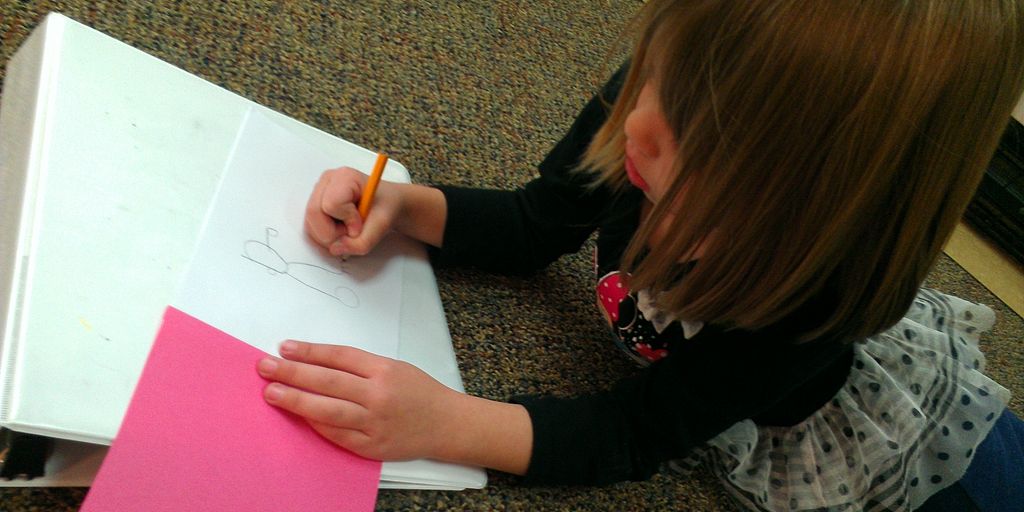
In an ever-evolving educational landscape, finding innovative and engaging ways to boost learning at home has become more crucial than ever. This article explores a variety of creative activities designed to make learning both fun and effective for children of all ages. From interactive language games to outdoor educational activities, these ideas aim to enrich your child’s educational journey right from the comfort of your home.
Key Takeaways
- Interactive language games like tongue twisters and storytelling can significantly enhance vocabulary and communication skills.
- Digital learning tools, including educational apps and virtual field trips, offer diverse and engaging ways for children to learn new concepts.
- Creative arts and crafts activities not only foster artistic expression but also integrate scientific and environmental education.
- Outdoor educational activities such as nature walks and gardening provide hands-on learning experiences that connect children with the natural world.
- Family-based learning activities like cooking, board games, and reading together can strengthen familial bonds while promoting various educational skills.
Interactive Language Games
Interactive language games are a fantastic way to make learning fun and engaging for children. These activities not only help in building vocabulary but also enhance communication skills and creativity. Here are some innovative language games to try at home:
Tongue Twisters for Vocabulary Building
Tongue twisters are a playful and effective method to improve pronunciation and vocabulary. Make up and play with tongue twisters like ‘Peter Piper picked a peck of pickled peppers’ or ‘Betty Botter bought a bit of butter.’ You can also find poems and rhymes that play with language, such as Michael Rosen’s ‘There’s mustard in the custard.’
Storytelling Through Role Play
Role-playing games can significantly boost a child’s storytelling abilities. Use puppets, dolls, or even construction toy characters to build a story setting. Encourage your child to create dialogues and scenarios, which can help in enhancing their narrative skills and imagination.
Role-playing not only makes storytelling fun but also helps children understand different perspectives and emotions.
Word Puzzles and Crosswords
Word puzzles and crosswords are excellent tools for vocabulary building and problem-solving. These games can be tailored to suit different age groups and skill levels. You can create your own puzzles or find printable versions online. Incorporating these activities into your child’s routine can make learning new words an enjoyable experience.
Digital Learning Tools
Educational Apps for All Ages
Educational apps have revolutionized home learning by providing interactive and engaging content for students of all ages. Industry-leading educational content can be found in many apps, offering personalized learning experiences that cater to individual needs. Some popular apps include ABCmouse for younger children, Khan Academy for a wide range of subjects, and Duolingo for language learning.
Virtual Field Trips
Virtual field trips allow students to explore new places and cultures without leaving their homes. These digital excursions can include visits to museums, historical sites, and even outer space. They provide a unique opportunity for students to learn about the world in an immersive way. For example, Discovery Education offers a variety of virtual field trips that cover different educational topics.
Virtual field trips are an excellent way to make learning more dynamic and engaging, especially when physical travel is not possible.
Interactive Workbooks
Interactive workbooks bring a new dimension to traditional learning materials. These digital and interactive workbooks often feature moveable pieces and interactive elements that make learning more engaging. They are available on platforms like Google Slides and can cover a wide range of subjects, from math to social-emotional learning. The digital toolbox provided by Demme Learning is a great resource for finding these types of workbooks.
Creative Arts and Crafts
DIY Science Projects
Engage your children in DIY Science Projects that combine creativity with learning. These projects can range from making simple volcanoes to creating homemade slime. Not only do they make learning fun, but they also help in understanding scientific concepts in a hands-on manner.
Encourage creativity and artistic expression with these fun, easy art activities for kids, including watercolor paintings, craft stick projects, and more.
Artistic Expression Through Drawing and Painting
Drawing and painting are excellent ways for children to express their emotions and ideas. Provide them with various materials like watercolors, crayons, and markers to explore their artistic side. This activity not only boosts their creativity but also improves their fine motor skills.
Crafting with Recycled Materials
Teach your kids the importance of recycling by engaging them in crafting projects using recycled materials. Items like old newspapers, cardboard boxes, and plastic bottles can be transformed into beautiful art pieces. This not only fosters creativity but also instills a sense of environmental responsibility in children.
Our art and craft ideas are perfect for parents and teachers of kids of all ages. E.g., baby handprint art, toddler craft projects, preschool art and craft ideas, and more.
Outdoor Educational Activities
Nature Walks and Scavenger Hunts
Spend time outside. It can really transform the learning environment just to step outside on nice days. Do an outdoor read aloud in the shade or just head out for an outdoor mindfulness nature walk. Daily nature walks can be a great way to explore the environment. You can also organize a nature counting scavenger hunt or adopt a tree in your yard.
Gardening for Science Learning
Gardening is a fantastic way to teach kids about science. They learn about plant biology, weather patterns, and the importance of taking care of the environment. Start with simple plants and gradually move to more complex gardening projects. This hands-on activity not only educates but also instills a sense of responsibility.
Outdoor Sports and Physical Education
Outdoor sports are essential for physical development and can be a lot of fun. Activities like soccer, basketball, or even a simple game of tag can help children develop motor skills and teamwork. Outdoor sports also provide a great opportunity to teach kids about the importance of physical fitness and a healthy lifestyle.
The only thing more fun than hands-on science is taking it outside! These outdoor science experiments and activities are for all ages.
Family-Based Learning Activities
Cooking and Baking for Math Skills
Cooking and baking are excellent ways to integrate math skills into everyday activities. Measuring ingredients, following recipes, and adjusting portions all require mathematical thinking. You’ll have fun making delicious treats while reinforcing concepts like fractions, ratios, and units of measurement.
Board Games for Strategic Thinking
Board games are not only entertaining but also educational. They help develop strategic thinking, problem-solving skills, and teamwork. Games like chess, Scrabble, and Settlers of Catan are great options for family game nights. Blended learning can be achieved by combining traditional board games with digital versions.
Reading Together as a Family
Reading together fosters a love for literature and improves language skills. Take turns reading aloud, discuss the story, and ask questions to enhance comprehension. Create a cozy, homelike environment to make reading sessions more enjoyable.
Family-based learning activities are a wonderful way to bond and learn together. They create lasting memories and make education a fun, integral part of daily life.
STEM Challenges at Home
Building Simple Machines
Building simple machines at home can be an exciting way for kids to understand basic engineering principles. Parents can also extend topics kids may have learned online or through school to practical applications. For instance, creating a lever or pulley system can help children grasp the concepts of force and motion. This hands-on activity not only makes learning fun but also encourages autodidactic learning through curiosity-driven testing.
Coding for Kids
Coding is an essential skill in today’s digital age. Introducing kids to basic coding can be both educational and entertaining. There are numerous platforms and apps designed specifically for children to learn coding in a playful manner. From creating simple animations to developing basic games, coding activities can significantly boost a child’s problem-solving skills and logical thinking.
STEM activities are also fun and can be performed by kids of all ages. Let’s do one STEM activity every day for the next 25 days!
Math Puzzles and Games
Math puzzles and games are excellent tools for making math enjoyable. Activities like Sudoku, math bingo, and logic puzzles can help children develop a love for numbers. These games not only improve mathematical skills but also enhance cognitive processing and critical thinking. Incorporating math puzzles into daily routines can make learning seamless and enjoyable for kids.
Cultural and Historical Exploration

Exploring World Cultures Through Food
One of the most engaging ways to learn about different cultures is through their cuisine. Dive into interactive experiences that celebrate diversity, traditions, and customs from around the globe. You can create a themed dinner night where each family member prepares a dish from a different country. This not only enhances cooking skills but also provides a delicious way to explore world cultures.
Virtual Museum Tours
Field trips and site visits connect learning to real-world situations. Virtual museum tours offer a unique opportunity to explore historical artifacts and exhibits from the comfort of your home. These tours can be both fun and instructive, adding much-needed variety to your educational activities. They often introduce students to hands-on skills they might pursue in greater depth.
Family History Projects
Delving into your own family history can be a fascinating way to learn about the past. Create a family tree, interview older relatives, and gather old photographs and documents. This activity not only helps in understanding personal heritage but also makes history more relatable and engaging. In this straightforward lesson, students will learn the names and locations of the 13 colonies. They will also group the colonies into regions: New England, Middle, and Southern colonies.
Embracing a perspective from another time or culture can be a valuable learning experience. It allows for a deeper understanding and empathy towards different ways of life.
Conclusion
In conclusion, the innovative educational activities and strategies discussed in this article provide a comprehensive toolkit for enhancing learning at home. By integrating games, digital activities, and creative homework alternatives, parents and educators can create an engaging and effective learning environment. These methods not only make learning fun but also cater to different learning styles and needs, ensuring that every child has the opportunity to succeed. Remember, the goal is to make learning an enjoyable and continuous process, fostering a lifelong love for knowledge. So, explore these ideas, adapt them to your unique situation, and watch as your child’s enthusiasm for learning grows.
Frequently Asked Questions
What are some fun language games for kids?
Interactive language games such as tongue twisters, storytelling through role play, and word puzzles can make learning vocabulary and grammar enjoyable for children.
How can digital tools enhance learning at home?
Digital tools like educational apps, virtual field trips, and interactive workbooks can provide engaging and interactive ways to learn new concepts and reinforce existing knowledge.
What are some creative arts and crafts activities for kids?
DIY science projects, drawing and painting, and crafting with recycled materials are great ways to encourage creativity and hands-on learning in children.
How can outdoor activities contribute to education?
Outdoor activities like nature walks, scavenger hunts, gardening, and outdoor sports can provide practical learning experiences and promote physical health and environmental awareness.
What are some family-based learning activities?
Cooking and baking for math skills, playing board games for strategic thinking, and reading together as a family are excellent ways to learn together and strengthen family bonds.
How can STEM challenges be incorporated at home?
Building simple machines, coding for kids, and engaging in math puzzles and games are effective ways to introduce STEM concepts and problem-solving skills in a fun and interactive manner.






